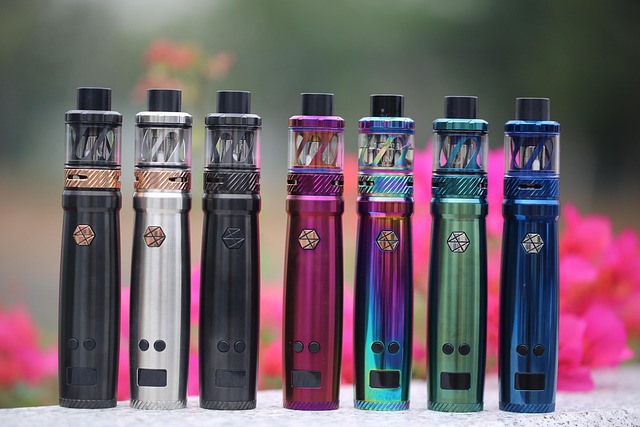The retail landscape is evolving, and one of the most intriguing innovations to surface in recent years is the vape vending machine. These sleek devices are popping up in convenience stores, malls, and even nightclubs, offering a new way for consumers to access e-cigarettes and vaping products. But what’s driving this shift? As more people turn to vaping as an alternative to traditional smoking, the demand for convenient purchasing options has soared. Consumers can now buy vape vending machines online, making it easier for businesses to adopt this automated retail solution. Vape vending machines are not just changing how we buy these products. They’re also reshaping consumer habits and retailer strategies alike. Get ready to explore how these machines are revolutionizing the market while igniting debates about regulation and safety along the way.
The Rise of E-Cigarettes and Vaping
 The surge in the popularity of e-cigarettes has transformed the smoking landscape. What started as a niche product has exploded into a multi-billion-dollar industry. Consumers are increasingly drawn to vaping for various reasons, including reduced health risks compared to traditional cigarettes. Many see it as an alternative that allows them to enjoy nicotine without the harmful tar and chemicals found in conventional tobacco.
The surge in the popularity of e-cigarettes has transformed the smoking landscape. What started as a niche product has exploded into a multi-billion-dollar industry. Consumers are increasingly drawn to vaping for various reasons, including reduced health risks compared to traditional cigarettes. Many see it as an alternative that allows them to enjoy nicotine without the harmful tar and chemicals found in conventional tobacco.
Innovative designs and flavors have made vaping appealing, especially among younger adults. Manufacturers continuously introduce new models and vape juices, catering to diverse preferences and lifestyles.
Benefits of Vape Vending Machines for Retailers
Vape vending machines offer a fresh approach for retailers looking to expand their product offerings. They create an automated sales channel that operates around the clock, capturing customers outside of traditional business hours. These machines require minimal staff involvement. Retailers can save on labor costs while streamlining operations. This efficiency allows employees to focus on enhancing customer service in other areas. Moreover, vape vending machines can be placed strategically in high-traffic locations. This increases visibility and accessibility, drawing in new customers who may not have visited a store otherwise. The variety of products housed within these units also appeals to diverse consumer preferences. Retailers can stock different brands, flavors, and device types without needing extensive shelf space.
Advantages for Consumers
Vape vending machines offer unmatched convenience for consumers. With their strategic placement in high-traffic areas, they provide easy access to e-cigarettes and vaping supplies at any time of day or night. Shoppers can browse without feeling rushed or pressured by sales staff. This allows for a more relaxed buying experience, especially for those new to vaping. Privacy is another significant advantage. Many users prefer discreet purchases, and these machines cater perfectly to that need. No awkward interactions; just select your product and go. Additionally, vape vending machines often stock a wide variety of brands and flavors that may not be available in local retailers. This diversity ensures enthusiasts can find exactly what they’re looking for without having to travel far.
Challenges and Controversies Surrounding Vape Vending Machines
Vape vending machines are not without their share of challenges and controversies. One major concern is age verification. Ensuring that minors do not access these products remains a critical issue. While many machines use sophisticated ID scanning technology, gaps still exist. Health implications also come into play. Critics argue that vaping may lead to increased nicotine addiction among younger users. The ease of access through vending machines can exacerbate this problem, leading to debates about public health priorities. Additionally, there’s tension between regulatory bodies and manufacturers. Different regions have varying laws governing the sale of e-cigarettes, creating confusion for both retailers and consumers alike.
Future Implications and Potential Regulations
The future of vape vending machines is likely to be shaped by evolving regulations as governments respond to public health concerns. As vaping becomes more mainstream, authorities may implement stricter age verification processes and licensing requirements for these machines. Technological advancements could also play a role in compliance. Enhanced identification systems might emerge, ensuring that only legal-age consumers can access products. This could help build trust with both retailers and customers. Moreover, as research on the effects of e-cigarettes continues to grow, regulatory bodies may introduce new guidelines regarding product offerings. Retailers need to stay informed about changes in legislation that could impact operations.

In Conclusion
The emergence of vape vending machines is reshaping how consumers access e-cigarettes. They offer convenience and accessibility, catering to the rising demand for vaping products while providing a modern twist on traditional retail. For retailers, these machines can lead to increased sales with lower staffing costs. However, challenges remain. The regulatory landscape surrounding vaping is rapidly evolving, leading to uncertainty about future operations of vending machines in this sector. Furthermore, concerns regarding age verification and responsible use continue to be at the forefront of discussions.

